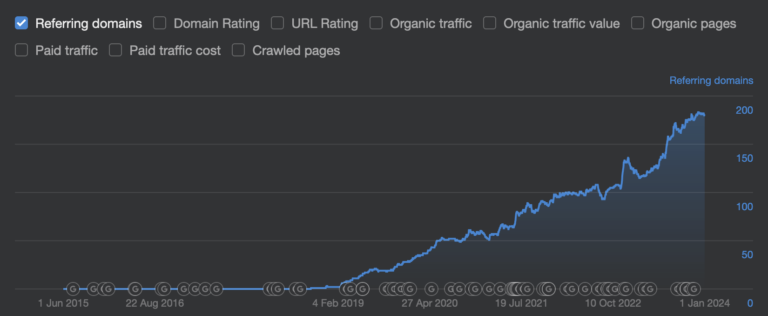SEO, or Search Engine Optimization, is the practice of optimizing a website in order to improve its visibility and ranking on search engine results pages (SERPs).
It involves making strategic changes to various elements of a website, including its content and structure, to make it more appealing to search engines.
The goal of SEO is to increase organic (non-paid) traffic to a website by ensuring that it appears higher in search results for relevant keywords and phrases.
How search engines work
Search engines like Google use complex algorithms to crawl and index web pages, determining their relevance and ranking in search results.
They do this by analyzing a wide range of factors, including website content, user experience, and the number and quality of incoming links.
When a user performs a search on a search engine, the engine’s algorithm quickly scours its index to find the most relevant pages that match the query.
The pages are then ranked based on various factors, including relevance, credibility, and user experience. The goal of SEO is to optimize a website so that it appears as high as possible in these search rankings.
The importance of SEO
SEO is crucial for several reasons:
- Increased visibility: Having a high ranking on search engine results pages means that more people are likely to see and visit your website.
- Targeted traffic: By optimizing your website for specific keywords and phrases, you can attract users who are actively searching for products or services related to your business. This increases the chances of converting these users into customers.
- Cost-effectiveness: Unlike paid advertising, SEO is a long-term strategy that can continue to drive traffic to your website even after you’ve stopped actively working on it. It is also generally more cost-effective than other digital marketing tactics.
- Credibility and trust: A high ranking on search engine results pages can build trust and credibility with potential customers. Users often perceive websites that appear on the first page of search results to be more reputable.
On-page SEO
On-page SEO refers to the optimization techniques applied directly to the website’s pages.
These techniques are designed to make the content more accessible and understandable to search engines, thus improving its chances of ranking higher in search results.
Here are some key on-page SEO factors to consider:
- Keyword research: Conduct thorough keyword research to identify the terms and phrases that are most relevant to your business. These keywords should be strategically placed in your website’s content.
- Content optimization: Create high-quality, informative content that is relevant to your target audience. Use your target keywords naturally throughout the content, ensuring that it remains valuable and engaging.
- Title tags and meta descriptions: Optimize your website’s title tags and meta descriptions to accurately reflect the page’s content and include relevant keywords. This helps search engines understand what the page is about and increases the likelihood of it appearing in relevant search results.
- URL structure: Use descriptive URLs that include relevant keywords to help search engines and users understand the content of a page before clicking on it.
- Header tags: Use header tags (H1, H2, etc.) to structure your content and indicate its hierarchy. This helps search engines understand the main topics discussed on a page.
- Internal linking: Implement internal links throughout your website to improve navigation and help search engines discover and index all of your pages. Internal links also help spread link authority to important pages.
Off-page SEO
Off-page SEO refers to techniques that are applied outside of a website to improve its visibility and ranking on search engine results pages.
These techniques primarily focus on building high-quality backlinks from other websites. Some key off-page SEO factors include:
- Link building: Building backlinks from authoritative websites within your industry. These links act as “votes of confidence” for your website, signaling to search engines that your content is valuable and trustworthy.
- Social media promotion: Share your website’s content on social media platforms to increase visibility and encourage social sharing. This can help attract more traffic to your website and increase the chances of earning backlinks.
- Influencer marketing: Collaborate with influencers or industry experts to promote your website or content. Their endorsements can help increase visibility and drive more organic traffic.
- Guest posting: Contribute high-quality articles to relevant blogs and websites in your industry. This can help establish your expertise, increase brand visibility, and earn valuable backlinks.
- Online directories and listings: Submit your website to reputable online directories and listings to improve its visibility and increase the chances of appearing in local search results.
Technical SEO
Technical SEO refers to optimization techniques that focus on the technical aspects of a website, ensuring that it is accessible and easily crawlable by search engines. Some key technical SEO factors include:
- Website speed: Optimize your website’s loading speed to ensure a positive user experience and improve search engine rankings. This can be achieved through techniques such as image optimization, caching, and reducing server response time.
- Mobile-friendliness: Ensure that your website is fully optimized for mobile devices, as mobile searches now dominate desktop searches. Responsive design and mobile-friendly content are crucial for a positive user experience as per Who Design Today and can affect search engine rankings.
- XML sitemaps: Create and submit XML sitemaps to search engines to help them discover and index your website’s pages more efficiently.
- Robots.txt: Use a robots.txt file to instruct search engine crawlers on how to navigate and crawl your website. This helps control which pages are indexed and prevents search engines from accessing certain parts of your site.
- Structured data: Implement structured data markup (such as Schema.org) to provide additional context to search engines about your website’s content. This can help improve the visibility and display of your website in search engine results.
Frequently asked questions
How long does it take to see results from SEO?
The time it takes to see results from SEO can vary depending on several factors, including the competitiveness of the keywords you’re targeting, the quality of your website’s content, and the effectiveness of your optimization efforts. In general, it can take several months to start seeing significant improvements in search engine rankings and organic traffic.
Is SEO only for Google?
While Google is the dominant search engine, SEO best practices generally apply to other search engines as well, such as Bing and Yahoo. However, Google’s algorithms are known to be more complex and frequently updated, so it’s essential to prioritize optimization for Google.
Can I do SEO by myself, or do I need to hire an expert?
You can certainly learn and implement SEO techniques on your own. Many resources and guides are available online to help you get started. However, SEO requires ongoing efforts, including staying up to date with algorithm changes and industry trends. Hiring an SEO expert or agency can be beneficial if you want professional guidance and specialized knowledge.
Can SEO guarantee top rankings on search engine results pages?
No, SEO cannot guarantee top rankings on search engine results pages. While SEO techniques can significantly improve a website’s visibility and ranking, search engine algorithms are complex and constantly evolving. It’s important to prioritize creating valuable content and providing a positive user experience instead of solely focusing on rankings.
Can SEO work for small businesses?
Yes, SEO can work for small businesses with limited resources. In fact, organic search traffic can be particularly valuable for small businesses as it is often more cost-effective than paid advertising. By optimizing their websites and targeting specific keywords, small businesses can attract relevant traffic and compete with larger competitors on search engine results pages.
Summary
SEO plays a crucial role in improving a website’s visibility and driving organic traffic. By implementing on-page, off-page, and technical SEO techniques, website owners can increase their chances of ranking higher on search engine results pages. It’s important to remember that SEO is an ongoing process that requires constant monitoring, adjustments, and content updates to stay ahead of the competition and meet the evolving demands of search engine algorithms.


